Warning: Undefined array key "background_pattern_style" in /opt/wpprojects.iiasa.ac.at/wordpress/wp-content/themes/Divi/includes/builder/module/FullwidthSlider.php on line 601
Warning: Undefined array key "background_pattern_style_tablet" in /opt/wpprojects.iiasa.ac.at/wordpress/wp-content/themes/Divi/includes/builder/module/FullwidthSlider.php on line 602
Warning: Undefined array key "background_pattern_style_phone" in /opt/wpprojects.iiasa.ac.at/wordpress/wp-content/themes/Divi/includes/builder/module/FullwidthSlider.php on line 603
Warning: Undefined array key "background_pattern_color" in /opt/wpprojects.iiasa.ac.at/wordpress/wp-content/themes/Divi/includes/builder/module/FullwidthSlider.php on line 605
Warning: Undefined array key "background_pattern_color_tablet" in /opt/wpprojects.iiasa.ac.at/wordpress/wp-content/themes/Divi/includes/builder/module/FullwidthSlider.php on line 606
Warning: Undefined array key "background_pattern_color_phone" in /opt/wpprojects.iiasa.ac.at/wordpress/wp-content/themes/Divi/includes/builder/module/FullwidthSlider.php on line 607
Warning: Undefined array key "background_pattern_transform" in /opt/wpprojects.iiasa.ac.at/wordpress/wp-content/themes/Divi/includes/builder/module/FullwidthSlider.php on line 609
Warning: Undefined array key "background_pattern_transform_tablet" in /opt/wpprojects.iiasa.ac.at/wordpress/wp-content/themes/Divi/includes/builder/module/FullwidthSlider.php on line 610
Warning: Undefined array key "background_pattern_transform_phone" in /opt/wpprojects.iiasa.ac.at/wordpress/wp-content/themes/Divi/includes/builder/module/FullwidthSlider.php on line 611
Warning: Undefined array key "background_pattern_size" in /opt/wpprojects.iiasa.ac.at/wordpress/wp-content/themes/Divi/includes/builder/module/FullwidthSlider.php on line 613
Warning: Undefined array key "background_pattern_size_tablet" in /opt/wpprojects.iiasa.ac.at/wordpress/wp-content/themes/Divi/includes/builder/module/FullwidthSlider.php on line 614
Warning: Undefined array key "background_pattern_size_phone" in /opt/wpprojects.iiasa.ac.at/wordpress/wp-content/themes/Divi/includes/builder/module/FullwidthSlider.php on line 615
Warning: Undefined array key "background_pattern_width" in /opt/wpprojects.iiasa.ac.at/wordpress/wp-content/themes/Divi/includes/builder/module/FullwidthSlider.php on line 617
Warning: Undefined array key "background_pattern_width_tablet" in /opt/wpprojects.iiasa.ac.at/wordpress/wp-content/themes/Divi/includes/builder/module/FullwidthSlider.php on line 618
Warning: Undefined array key "background_pattern_width_phone" in /opt/wpprojects.iiasa.ac.at/wordpress/wp-content/themes/Divi/includes/builder/module/FullwidthSlider.php on line 619
Warning: Undefined array key "background_pattern_height" in /opt/wpprojects.iiasa.ac.at/wordpress/wp-content/themes/Divi/includes/builder/module/FullwidthSlider.php on line 621
Warning: Undefined array key "background_pattern_height_tablet" in /opt/wpprojects.iiasa.ac.at/wordpress/wp-content/themes/Divi/includes/builder/module/FullwidthSlider.php on line 622
Warning: Undefined array key "background_pattern_height_phone" in /opt/wpprojects.iiasa.ac.at/wordpress/wp-content/themes/Divi/includes/builder/module/FullwidthSlider.php on line 623
Warning: Undefined array key "background_pattern_repeat_origin" in /opt/wpprojects.iiasa.ac.at/wordpress/wp-content/themes/Divi/includes/builder/module/FullwidthSlider.php on line 625
Warning: Undefined array key "background_pattern_repeat_origin_tablet" in /opt/wpprojects.iiasa.ac.at/wordpress/wp-content/themes/Divi/includes/builder/module/FullwidthSlider.php on line 626
Warning: Undefined array key "background_pattern_repeat_origin_phone" in /opt/wpprojects.iiasa.ac.at/wordpress/wp-content/themes/Divi/includes/builder/module/FullwidthSlider.php on line 627
Warning: Undefined array key "background_pattern_horizontal_offset" in /opt/wpprojects.iiasa.ac.at/wordpress/wp-content/themes/Divi/includes/builder/module/FullwidthSlider.php on line 629
Warning: Undefined array key "background_pattern_horizontal_offset_tablet" in /opt/wpprojects.iiasa.ac.at/wordpress/wp-content/themes/Divi/includes/builder/module/FullwidthSlider.php on line 630
Warning: Undefined array key "background_pattern_horizontal_offset_phone" in /opt/wpprojects.iiasa.ac.at/wordpress/wp-content/themes/Divi/includes/builder/module/FullwidthSlider.php on line 631
Warning: Undefined array key "background_pattern_vertical_offset" in /opt/wpprojects.iiasa.ac.at/wordpress/wp-content/themes/Divi/includes/builder/module/FullwidthSlider.php on line 633
Warning: Undefined array key "background_pattern_vertical_offset_tablet" in /opt/wpprojects.iiasa.ac.at/wordpress/wp-content/themes/Divi/includes/builder/module/FullwidthSlider.php on line 634
Warning: Undefined array key "background_pattern_vertical_offset_phone" in /opt/wpprojects.iiasa.ac.at/wordpress/wp-content/themes/Divi/includes/builder/module/FullwidthSlider.php on line 635
Warning: Undefined array key "background_pattern_repeat" in /opt/wpprojects.iiasa.ac.at/wordpress/wp-content/themes/Divi/includes/builder/module/FullwidthSlider.php on line 637
Warning: Undefined array key "background_pattern_repeat_tablet" in /opt/wpprojects.iiasa.ac.at/wordpress/wp-content/themes/Divi/includes/builder/module/FullwidthSlider.php on line 638
Warning: Undefined array key "background_pattern_repeat_phone" in /opt/wpprojects.iiasa.ac.at/wordpress/wp-content/themes/Divi/includes/builder/module/FullwidthSlider.php on line 639
Warning: Undefined array key "background_pattern_blend_mode" in /opt/wpprojects.iiasa.ac.at/wordpress/wp-content/themes/Divi/includes/builder/module/FullwidthSlider.php on line 641
Warning: Undefined array key "background_pattern_blend_mode_tablet" in /opt/wpprojects.iiasa.ac.at/wordpress/wp-content/themes/Divi/includes/builder/module/FullwidthSlider.php on line 642
Warning: Undefined array key "background_pattern_blend_mode_phone" in /opt/wpprojects.iiasa.ac.at/wordpress/wp-content/themes/Divi/includes/builder/module/FullwidthSlider.php on line 643
Warning: Undefined array key "background_enable_pattern_style" in /opt/wpprojects.iiasa.ac.at/wordpress/wp-content/themes/Divi/includes/builder/module/FullwidthSlider.php on line 645
Warning: Undefined array key "background_enable_pattern_style_tablet" in /opt/wpprojects.iiasa.ac.at/wordpress/wp-content/themes/Divi/includes/builder/module/FullwidthSlider.php on line 646
Warning: Undefined array key "background_enable_pattern_style_phone" in /opt/wpprojects.iiasa.ac.at/wordpress/wp-content/themes/Divi/includes/builder/module/FullwidthSlider.php on line 647
Warning: Undefined array key "background_mask_style" in /opt/wpprojects.iiasa.ac.at/wordpress/wp-content/themes/Divi/includes/builder/module/FullwidthSlider.php on line 650
Warning: Undefined array key "background_mask_style_tablet" in /opt/wpprojects.iiasa.ac.at/wordpress/wp-content/themes/Divi/includes/builder/module/FullwidthSlider.php on line 651
Warning: Undefined array key "background_mask_style_phone" in /opt/wpprojects.iiasa.ac.at/wordpress/wp-content/themes/Divi/includes/builder/module/FullwidthSlider.php on line 652
Warning: Undefined array key "background_mask_color" in /opt/wpprojects.iiasa.ac.at/wordpress/wp-content/themes/Divi/includes/builder/module/FullwidthSlider.php on line 654
Warning: Undefined array key "background_mask_color_tablet" in /opt/wpprojects.iiasa.ac.at/wordpress/wp-content/themes/Divi/includes/builder/module/FullwidthSlider.php on line 655
Warning: Undefined array key "background_mask_color_phone" in /opt/wpprojects.iiasa.ac.at/wordpress/wp-content/themes/Divi/includes/builder/module/FullwidthSlider.php on line 656
Warning: Undefined array key "background_mask_transform" in /opt/wpprojects.iiasa.ac.at/wordpress/wp-content/themes/Divi/includes/builder/module/FullwidthSlider.php on line 658
Warning: Undefined array key "background_mask_transform_tablet" in /opt/wpprojects.iiasa.ac.at/wordpress/wp-content/themes/Divi/includes/builder/module/FullwidthSlider.php on line 659
Warning: Undefined array key "background_mask_transform_phone" in /opt/wpprojects.iiasa.ac.at/wordpress/wp-content/themes/Divi/includes/builder/module/FullwidthSlider.php on line 660
Warning: Undefined array key "background_mask_aspect_ratio" in /opt/wpprojects.iiasa.ac.at/wordpress/wp-content/themes/Divi/includes/builder/module/FullwidthSlider.php on line 662
Warning: Undefined array key "background_mask_aspect_ratio_tablet" in /opt/wpprojects.iiasa.ac.at/wordpress/wp-content/themes/Divi/includes/builder/module/FullwidthSlider.php on line 663
Warning: Undefined array key "background_mask_aspect_ratio_phone" in /opt/wpprojects.iiasa.ac.at/wordpress/wp-content/themes/Divi/includes/builder/module/FullwidthSlider.php on line 664
Warning: Undefined array key "background_mask_size" in /opt/wpprojects.iiasa.ac.at/wordpress/wp-content/themes/Divi/includes/builder/module/FullwidthSlider.php on line 666
Warning: Undefined array key "background_mask_size_tablet" in /opt/wpprojects.iiasa.ac.at/wordpress/wp-content/themes/Divi/includes/builder/module/FullwidthSlider.php on line 667
Warning: Undefined array key "background_mask_size_phone" in /opt/wpprojects.iiasa.ac.at/wordpress/wp-content/themes/Divi/includes/builder/module/FullwidthSlider.php on line 668
Warning: Undefined array key "background_mask_width" in /opt/wpprojects.iiasa.ac.at/wordpress/wp-content/themes/Divi/includes/builder/module/FullwidthSlider.php on line 670
Warning: Undefined array key "background_mask_width_tablet" in /opt/wpprojects.iiasa.ac.at/wordpress/wp-content/themes/Divi/includes/builder/module/FullwidthSlider.php on line 671
Warning: Undefined array key "background_mask_width_phone" in /opt/wpprojects.iiasa.ac.at/wordpress/wp-content/themes/Divi/includes/builder/module/FullwidthSlider.php on line 672
Warning: Undefined array key "background_mask_height" in /opt/wpprojects.iiasa.ac.at/wordpress/wp-content/themes/Divi/includes/builder/module/FullwidthSlider.php on line 674
Warning: Undefined array key "background_mask_height_tablet" in /opt/wpprojects.iiasa.ac.at/wordpress/wp-content/themes/Divi/includes/builder/module/FullwidthSlider.php on line 675
Warning: Undefined array key "background_mask_height_phone" in /opt/wpprojects.iiasa.ac.at/wordpress/wp-content/themes/Divi/includes/builder/module/FullwidthSlider.php on line 676
Warning: Undefined array key "background_mask_position" in /opt/wpprojects.iiasa.ac.at/wordpress/wp-content/themes/Divi/includes/builder/module/FullwidthSlider.php on line 678
Warning: Undefined array key "background_mask_position_tablet" in /opt/wpprojects.iiasa.ac.at/wordpress/wp-content/themes/Divi/includes/builder/module/FullwidthSlider.php on line 679
Warning: Undefined array key "background_mask_position_phone" in /opt/wpprojects.iiasa.ac.at/wordpress/wp-content/themes/Divi/includes/builder/module/FullwidthSlider.php on line 680
Warning: Undefined array key "background_mask_horizontal_offset" in /opt/wpprojects.iiasa.ac.at/wordpress/wp-content/themes/Divi/includes/builder/module/FullwidthSlider.php on line 682
Warning: Undefined array key "background_mask_horizontal_offset_tablet" in /opt/wpprojects.iiasa.ac.at/wordpress/wp-content/themes/Divi/includes/builder/module/FullwidthSlider.php on line 683
Warning: Undefined array key "background_mask_horizontal_offset_phone" in /opt/wpprojects.iiasa.ac.at/wordpress/wp-content/themes/Divi/includes/builder/module/FullwidthSlider.php on line 684
Warning: Undefined array key "background_mask_vertical_offset" in /opt/wpprojects.iiasa.ac.at/wordpress/wp-content/themes/Divi/includes/builder/module/FullwidthSlider.php on line 686
Warning: Undefined array key "background_mask_vertical_offset_tablet" in /opt/wpprojects.iiasa.ac.at/wordpress/wp-content/themes/Divi/includes/builder/module/FullwidthSlider.php on line 687
Warning: Undefined array key "background_mask_vertical_offset_phone" in /opt/wpprojects.iiasa.ac.at/wordpress/wp-content/themes/Divi/includes/builder/module/FullwidthSlider.php on line 688
Warning: Undefined array key "background_mask_blend_mode" in /opt/wpprojects.iiasa.ac.at/wordpress/wp-content/themes/Divi/includes/builder/module/FullwidthSlider.php on line 690
Warning: Undefined array key "background_mask_blend_mode_tablet" in /opt/wpprojects.iiasa.ac.at/wordpress/wp-content/themes/Divi/includes/builder/module/FullwidthSlider.php on line 691
Warning: Undefined array key "background_mask_blend_mode_phone" in /opt/wpprojects.iiasa.ac.at/wordpress/wp-content/themes/Divi/includes/builder/module/FullwidthSlider.php on line 692
Warning: Undefined array key "background_enable_mask_style" in /opt/wpprojects.iiasa.ac.at/wordpress/wp-content/themes/Divi/includes/builder/module/FullwidthSlider.php on line 694
Warning: Undefined array key "background_enable_mask_style_tablet" in /opt/wpprojects.iiasa.ac.at/wordpress/wp-content/themes/Divi/includes/builder/module/FullwidthSlider.php on line 695
Warning: Undefined array key "background_enable_mask_style_phone" in /opt/wpprojects.iiasa.ac.at/wordpress/wp-content/themes/Divi/includes/builder/module/FullwidthSlider.php on line 696
Warning: Undefined array key "logo_width" in /opt/wpprojects.iiasa.ac.at/wordpress/wp-content/themes/Divi/includes/builder/module/FullwidthMenu.php on line 862
Warning: Undefined array key "logo_height" in /opt/wpprojects.iiasa.ac.at/wordpress/wp-content/themes/Divi/includes/builder/module/FullwidthMenu.php on line 863
IIASA Members
Researchers Involved
Journal Citations
(€) Funding
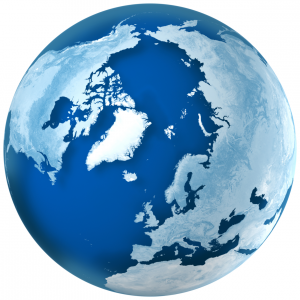
International partnerships form an integral part of IIASA research—an average of 100 projects can be under way at any one time, involving in-residence researchers who number more than 300.
Over 2,000 scientists around the world, associated with IIASA through fellowships, visitor contracts, and other research ties, collaborate in projects at the global, regional, and national scale. Many field collaborators supply up-to-date data to support IIASA modeling efforts.
IIASA’s international network is continuously renewed through the Young Scientists Summer Program and the Postdoctoral Program. This highly visible and coherently organized global IIASA community makes collaboration around projects more effective and increases awareness of IIASA and its work.
Following is a selective overview of IIASA’s work in 2014, much of it cross-continental and global. Read More >>
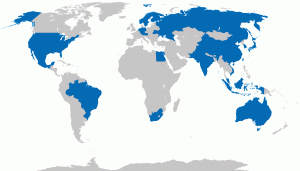
New projections from IIASA researchers provided a more in-depth view of future population, structured by age, sex, and level of education for 195 countries in the world.
IIASA scientists used the GAINS model to complete a new generation of projections of global future air pollution and greenhouse gas emissions for 168 world regions that indicated the outcomes of potential policy decisions in the future.
Most flood risk reduction projects in multiple global contexts have paid off, according to IIASA scientists who produced a comprehensive cost-benefit review to show the many benefits of decision-support tools in different environments: the Caribbean, Nepal, Vietnam, India, Indonesia, and New York.
Nineteen IIASA scientists and two Council members contributed to the Fifth Assessment Report of the Intergovernmental Panel on Climate Change, published in 2014.
Modeling the macroeconomic impact of three different education-specific policy/investment scenarios by IIASA researchers revealed the critical importance worldwide of educational attainment, especially secondary education, in determining economic development.
Complex issues of economic cooperation between the enlargedEuropean Union, the Eurasian Customs Union (Belarus, Kazakhstan, Russia), and its neighbors (including China, Korea, and Japan) were discussed at joint scientific–stakeholder workshops held at IIASA.
IIASA was represented on the United Nations Secretary General’s High-Level Technical Group on Sustainable Energy for All (SE4All), held at the United Nations, New York, and scientists are taking a leading role in SE4All initiatives worldwide.

Warming in the Arctic is increasingly being influenced by human activities and, as sea ice declines, is itself influencing plans for land use and exploitation. The Arctic Futures Initiative was launched at IIASA in 2014 to address the need for a holistic, integrative assessment of plausible futures that crosscuts national strategies and ensures future sustainable development of all Arctic territory.
In 2014 IIASA made available emission projections for 18 short- and long-lived atmospheric substances to 2050 to provide important input both for national analyses as well as for international model experiments of global circulation climate and chemical transport models. These are being used by the Arctic Council.
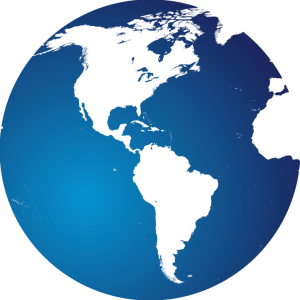 Researchers helped develop comparative approaches to the environmental governance of transboundary water resources along the Rio Grande/Río Bravo Basin and the Colorado River Basin, which forms the national border between the United States and Mexico and is considered to be the most endangered river in North America.
Researchers helped develop comparative approaches to the environmental governance of transboundary water resources along the Rio Grande/Río Bravo Basin and the Colorado River Basin, which forms the national border between the United States and Mexico and is considered to be the most endangered river in North America.
The state of energy poverty in three Central American countries—Guatemala, Honduras, and Nicaragua —was assessed for the first time in an analysis conducted by IIASA for the World Bank; policy costs to eradicate energy poverty were estimated using an application of the IIASA MESSAGE-Access model and a policy report was circulated among policymakers and stakeholders in the three countries.
BeWhere Brazil, a techno-economic optimization model that analyzes the alternative uses of sugarcane biomass for second-generation ethanol and/or bio-electricity production in Brazil, was launched in 2014; the model takes into account different technological improvements to existing sugarcane mills.
Although recent advances in gas production technology have led to exploitation of bountiful, low-cost natural gas, particularly in the United States, via hydraulic fracturing, IIASA research showed that without new climate policies, expanding “fracking” will not slow the growth of global greenhouse gas emissions worldwide over the long term.
IIASA analyzed the objective of universal pension coverage in Mexico, one of a series of briefings on social protection in older age.
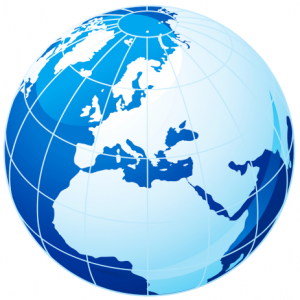 The Austrian national counterpart to the assessment reports of the IPCC, the Report of the Austrian Panel on Climate Change, was published in 2014. It was compiled by more than 240 scientists in Austria working in the climate change field over a three-year period and coordinated by IIASA.
The Austrian national counterpart to the assessment reports of the IPCC, the Report of the Austrian Panel on Climate Change, was published in 2014. It was compiled by more than 240 scientists in Austria working in the climate change field over a three-year period and coordinated by IIASA.
The IIASA project “Structural Change of the Finnish Economy: A Systems Approach,” which provided policy advice on regional development and inter-bank lending was submitted to the Finnish Ministry of Employment and the Economy.
An IIASA study was the first to examine adaptation to forest fire danger on a pan-European scale and showed that climate change is likely to bring increased temperatures and longer droughts to Europe, making the continent’s forests more susceptible to fires.
A workshop for European policymakers in Brussels heard from IIASA researchers about the substantial new investment needed in low-carbon energy and energy efficiency over the coming decades and the risks of “locking in” fossil-based energy infrastructure that will likely become redundant before the end of its useful life.
IIASA is working on a European Union project to evaluate and improve integrated assessment models used for developing strategies to deal with long-term EU climate policy in a global context. A main strategy is to increase and enhance data input to the modeling.
 IIASA’s global EPIC model GEPIC was used to examine crop yield deficits resulting from increasingly unbalanced Nitrogen:Phosphorus applications in Africa.
IIASA’s global EPIC model GEPIC was used to examine crop yield deficits resulting from increasingly unbalanced Nitrogen:Phosphorus applications in Africa.
A €1.4 million grant from the European Research Council is enabling the extension of IIASA’s Geo-Wiki initiative by building a network of citizen scientists to provide in situ data on land cover and land use in Austria, Kenya, and Tanzania, using mobile apps to enable people in the field to upload land cover data to Geo-Wiki.
IIASA, together with the Stockholm Environment Institute, organized a workshop in Kenya which focused on how the introduction of low-carbon options might change the conditions for expanding energy access in Africa.
IIASA used the GLOBIOM model to study three scenarios from the IPCC’s Shared Socioeconomic Pathways to determine consumption, production, prices, and trade projections for different animal products in sub-Saharan, East, West, and southern Africa and the Congo Basin against selected regions of the world.
Thirty-six young scientists took part in the 2013-2014 Southern African Young Scientists Summer Program at the University of the Free State in Bloemfontein, South Africa.
 Researchers conducted semi-structured interviews with municipal government officials and community leaders in two Japanese areas affected by the 2011 tsunami disaster and found that people’s objectives and measures for long-term reconstruction, for example, land-use adjustments, relocation of communities, and rebuilding of sea walls, were highly contested.
Researchers conducted semi-structured interviews with municipal government officials and community leaders in two Japanese areas affected by the 2011 tsunami disaster and found that people’s objectives and measures for long-term reconstruction, for example, land-use adjustments, relocation of communities, and rebuilding of sea walls, were highly contested.
Researchers updated key crop eco-physiological parameters in the Agro-ecological Zones (AEZ) model database, for example, the japonica rice parameters for Northeast China, where moderate warming in the last 50 years has enabled innovative adaptation efforts to expand the rice planting area and rice yield increment.
IIASA collaboration with its Indian partner institution in the project, Sustaining and Improving Rural Livelihoods through Adaptive Approaches to Land, Soil Nutrient and Water Management, in 2014 focused on sustaining and improving rural livelihoods in the Gujarat region on the northwest coat of India.
IIASA research showed that while improving household electricity access in India over the last 30 years has contributed only marginally to the nation’s total carbon emissions growth, expanding low-carbon energy technologies in developing countries such as India would bring many co-benefits beyond climate mitigation.
IIASA scientists are working with colleagues from Japan to research ways of improving the representation of technological change in integrated assessment models (IAMs) to inform climate policy choices.
Given the substantial interactions between long-lived greenhouse gases and short-lived climate pollutants, IIASA assessed the industry and transportation sectors across the Asian continent and discovered emission mitigation options that could help reduce multiple polluting substances simultaneously.
IIASA research into bio-energy with carbon capture and storage (BECCS) using the BeWhere model showed that some of the southern coastal regions of Japan appear suitable for carbon storage. A higher storage potential could be achieved through off-shore carbon storage and enhanced cross-border collaboration by Japan with South Korea.
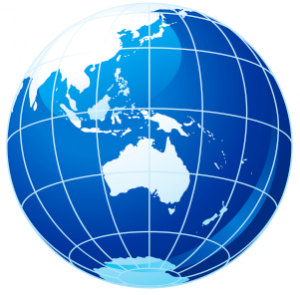 For the Asian Development Bank Institute, IIASA contributed to a book on the Asia-Pacific region arguing that governments, donors, and multilateral development banks can enhance preparedness by supporting disaster risk reduction measures implemented before events strike.
For the Asian Development Bank Institute, IIASA contributed to a book on the Asia-Pacific region arguing that governments, donors, and multilateral development banks can enhance preparedness by supporting disaster risk reduction measures implemented before events strike.
IIASA scientists organized the formal launch of the cross-sectoral Tropical Futures Initiative (TFI) at a workshop with the signing of a Memorandum of Understanding in Jakarta, Indonesia, in February 2014.
IIASA worked with Australian and other international researchers, using the GLOBIOM model and new data inputs to consider multiple aspects of livestock futures in African countries.
Researchers from Australia collaborated in 2014 on a number of internationally significant projects including Future Earth, the Integrated Assessment Modeling Consortium, and the Global Carbon Project.
Our Mission
Strategy 2011-2020
IIASA’s strategic aim is to apply advanced systems analysis to identify solutions to the tensions that exist between the developmental aspirations of billions of people, many of whom suffer chronic poverty, and the equally pressing need to safeguard the natural world on which the whole of humanity depends.
During this decade, IIASA is focusing its research expertise on three major global problem areas:
- Energy & Climate Change
- Food & Water
- Poverty & Equity
Supporting these activities is research into the drivers of global transformation, development of more advanced systems analysis methodologies, ongoing efforts to maximize the impact of the Institute’s research on policy, and extensive education and training. IIASA aims to deliver truly integrative analyses that provide insights into the issues at the nexus of these global problem areas.
Governing Council Members
- Dr. Andrew Johnson, Australia
- Professor Dr. Gerhard Glatzel, Austria
- Professor Carlos Nobre, Brazil
- Professor Congqiang Liu, P.R. China
- Professor Mahmoud M. Sakr, Egypt
- Professor Dr. Mats Gyllenberg, Finland
- Professor Dr. Helga Weisz, Germany
- Professor Prabhat Ranjan, India
- Professor Dr. Kuntoro Mangkusubroto, Indonesia
- Dr. Kazu Takemoto, Japan
- Professor Min Keun Chung, Republic of Korea
- Dr. Ahmad Tajuddin Ali, Malaysia
- Dr. Eduardo Sojo Garza Aldape and Dr. Enrique Cabrero Mendoza, Mexico
- Professor Dr. Jos Engelen, Netherlands
- Dr. Kirsten Broch Mathisen, Norway (Vice-Chair)
- Professor Dr. Kauser Abdulla Malik, Pakistan
- Academician Professor Alexei Gvishiani, Russian Federation (Vice-Chair)
- Dr. Dorsamy (Gansen) Pillay, South Africa
- Dr. Ingrid Petersson, Sweden
- Professor Dr. Academician Anatoly G. Zagorodny, Ukraine
- Professor Donald Saari, United States of America (Chair)
- Associate Professor Dr. Ninh Khac Ban, Vietnam
On 31 December 2014, 22 countries were members of IIASA through their National Member Organizations, and these were the members of IIASA’s Governing Council.
National Member Organizations
- AUSTRALIA The Commonwealth Scientific and Industrial Research Organisation (CSIRO)
- AUSTRIA The Austrian Academy of Sciences
- BRAZIL Center for Strategic Studies and Management in Science, Technology and Innovation (CGEE)
- CHINA The National Natural Science Foundation of China
- EGYPT The Academy of Scientific Research and Technology (ASRT)
- FINLAND The Finnish Committee for IIASA
- GERMANY The Association for the Advancement of IIASA
- INDIA The Technology Information, Forecasting and Assessment Council (TIFAC)
- INDONESIA The Indonesian National Committee for IIASA
- JAPAN The Japan Committee for IIASA
- MALAYSIA Academy of Sciences Malaysia
- MEXICO The Mexican National Committee for IIASA
- NETHERLANDS The Netherlands Organization for Scientific Research (NWO)
- NORWAY The Research Council of Norway
- PAKISTAN The Pakistan Academy of Sciences
- REPUBLIC OF KOREA National Research Foundation of Korea (NRF)
- RUSSIA The Russian Academy of Sciences
- SOUTH AFRICA The National Research Foundation
- SWEDEN The Swedish Research Council for Environment, Agricultural Sciences and Spatial Planning (FORMAS)
- UKRAINE The Ukrainian Academy of Sciences
- UNITED STATES OF AMERICA The National Academy of Sciences
- VIETNAM Vietnam Academy of Science and Technology (VAST)
Scientific Publications
Financials
We’re on Social Media
From the Chair and Director
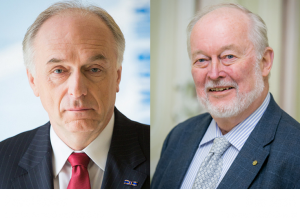
We take this opportunity to thank our 22 NMOs for their support in 2014 and unstinting contribution to Institute life. The Mexican National Committee for IIASA became our 22nd NMO in 2014 and some of its first collaborative work is featured in this report. A more detailed insight into all IIASA’s scientific work is also available online as part of the 2014 Scientific Update.




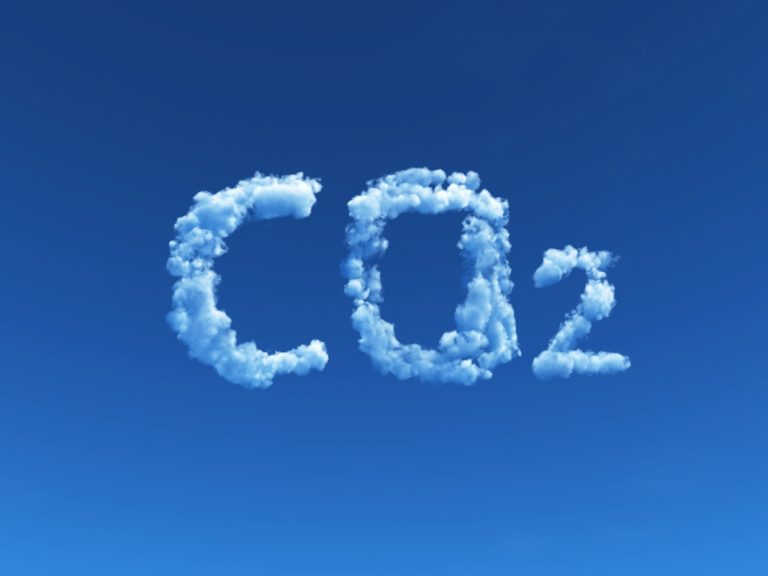




Education and Training
IIASA continued to pass on the theory and practice of advanced systems analysis to new generations of young scientists through the Young Scientists Summer Program (YSSP), the Southern African YSSP (SA-YSSP), and the Postdoctoral Research Program, all of which thrived in 2014. Through workshops and training, IIASA also strengthened local scientific capacity in many countries to use systems analysis to address interconnected social, economic, and environmental challenges.
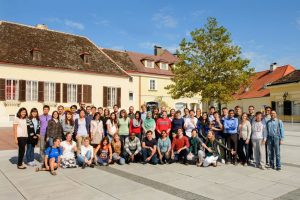
The 2014 Young Scientists Summer Program, one of the Institute’s most acclaimed programs, welcomed 49 advanced graduate students from 23 countries to work on their research projects within IIASA programs.
Since the YSSP began in 1977, some 1,772 participants have benefited from the opportunity to collaborate with IIASA’s scholars and enhance their own perspectives and career opportunities. Many have achieved high positions in science, business, and government. Others have returned to IIASA as research scholars or worked as close collaborators in the Institute’s research network
The 2013–2014 Southern African Young Scientists Summer Program (SA‑YSSP) was hosted by the University of the Free State in Bloemfontein, South Africa.
Thirty-six young scientists from 21 nations by citizenship or residence were supervised by IIASA senior scholars and South African senior researchers. The SA‑YSSP is co‑organized by IIASA and its South African National Member Organization, the National Research Foundation.
Awards
In 2014 the Peccei Award and Mikhalevich Award were presented, respectively, to Danielle Haak from the United States and Jun Liu from China.
The Peccei Award is given to young scientists in recognition of their understanding of global problems, and the Mikhalevich Award to young scientists solving research questions with mathematical tools. The awards provide financial support to return to IIASA for an additional six-month research period.
Peccei Award winner, Danielle Haak, a third-year PhD candidate at the School of Natural Resources, University of Nebraska-Lincoln, conducted her research within IIASA’s Advanced Systems Analysis (ASA) Program. Her final paper was entitled, “Coupling ecological and social network models to assess ‘transmission’ and ‘contagion’ of an aquatic invasive species.”
Mikhalevich Award winner, Jun Liu, a fourth-year PhD candidate at the College of Environmental Sciences and Engineering at Peking University, conducted her research in IIASA’s Mitigation of Air Pollution and Greenhouse Gases (MAG) Program. Her final paper was entitled, “Air quality benefits of coal substitution policies in Beijing-Tianjin-Hebei Region in China.”
Honorable mentions, with grants enabling recipients to return to IIASA for three months’ research, went to: Thomas Schinko, a third-year PhD student from the University of Graz, Austria, who worked in IIASA’s Risk, Policy and Vulnerability (RPV) Program, for “Impacts of risks perceptions on investment costs of renewable energy sources”; and Edoardo Borgomeo, a second-year PhD student at the Environmental Change Institute, University of Oxford, who also worked in RPV, for “Modeling vulnerability to drought in water supply systems.”
Scholarships
In 2014 funding was again offered to young scientists through IIASA’s Annual Fund and the Petr Aven Fellowship. An Annual Fund scholarship was awarded to Ms. Thanicha Ruangmas of Thailand, who worked in IIASA’s Mitigation of Air Pollution and Greenhouse Gases (MAG) Program on a project to explore the embedded pollution costs in Chinese exports to the European Union.
Mr. Askhad Panesh of the Russian Federation won the Petr Aven Fellowship for research in IIASA’s Advanced Systems Analysis (ASA) Program on sustainable exploitation of biological resources through maximizing profit while minimizing environmental impacts. More>>
In 2014 there were 11 postdoctoral researchers in-house at IIASA, funded from different sources. Postdoctoral Program research, which is always on a topic related to IIASA’s scientific agenda, is intended to build participants’ experience and expertise, including knowledge of systems analysis.
- Artem Baklanov (ASA, Russia) studied the complex dynamics of players interacting under pressures caused by diversification of their individual interests under global economic and political challenges.
- Gergely Boza (EEP, Hungary) is researching best plant investment strategies, with optimal balance between investment in allelochemical production and growth, in combination with different agricultural techniques.
- Fulvio Di Fulvio (ESM, Italy) modeled and optimized forest fuelwood procurement to analyze forest biomass integration with other wood products and biomass from dedicated energy-wood plantations.
- Daniel Jessie (ASA, United States) began developing different analytical approaches to questions that arise in the analysis of complex systems, in particular, the nature of strategically interacting agents.
- Christina Kaiser (EEP, Austria) studied competitive and synergistic interactions between soil microbes belonging to different microbial functional groups in a spatially structured system.
- Pietro Landi (EEP, Italy) is researching the adaptive behavior of single individuals in two different projects: animal movements and conservation of biodiversity, and sustainable management of fisheries.
- Wei Liu (RPV, China) studied integrated adaptive management of complex socio-ecological systems, with a focus on China, one research topic being a synthesis of giant panda habitat selection.
- Luzma Nava Jimenez (WAT, Mexico) defined a qualitative methodology to evaluate and compare different scenarios of environmental management and governance of transboundary water resources.
- Carl Salk (ESM, USA) used the Geo-Wiki tool to generate better land cover maps at different scales to discover availability of land for different human needs and cooperation in natural resource management among users.
- Per Sjödin (EEP, Sweden) studied the consequences for cooperation of state‑dependent dispersal of individuals and the coexistence and evolutionary branching of species in one- and two-trophic communities.
- Matthias Wildemeersch (ASA/ESM, Belgium) focused on applying probability and control theory to network dynamics and robustness to better understand the behavior of large‑scale, complex networks and improve their stability.
IIASA uses workshops as an important element of outreach, training, and information exchange, for scientists and policymakers. A few of 2014’s many workshops are highlighted here.
- Ecosystems Services and Management (ESM) researchers held a technical workshop in Jakarta, Indonesia, to prepare for a quantitative assessment of REDD+ for Indonesia.
- IIASA hosted an expert workshop on behalf of the Global Commission on the Economy and Climate looking at how climate mitigation strategies and technologies can change energy access conditions.
- An Arctic Scenarios Workshop in collaboration with the Arctic Council’s Arctic Monitoring and Assessment Programme was held at IIASA to develop a pan‑Arctic and regional Arctic scenario framework.
- Researchers from the Risk, Policy and Vulnerability (RPV) Program gave a two-day workshop, “Fiscal and Economic Disaster Risks in Cambodia—Validation and Use of the CatSim Approach,” to 30 national-level Cambodian policymakers and NGOs.
- At the International Energy Workshop, ESM scientists presented the latest update of the BeWhere Alps model which identifies bio-energy potential in the very fragile Alpine ecosystem.
- Two workshops contributed to the IIASA project on the “Challenges and Opportunities of Economic Integration within a Wider European and Eurasian Space.” The first focused on trade policy regimes; the second on non-tariff barriers and technical regulations.
- World Population Program (POP) researchers held a training workshop on “Demographic Analysis and Computer Application” at the Asian MetaCentre, Chulalongkorn University, Thailand.
- A workshop on “Integrated Modeling of Food, Energy, Water Security Management for Sustainable Social, Economic, and Environmental Developments” presented mid-term results of the cooperation project between IIASA and the National Academy of Sciences, Ukraine.
